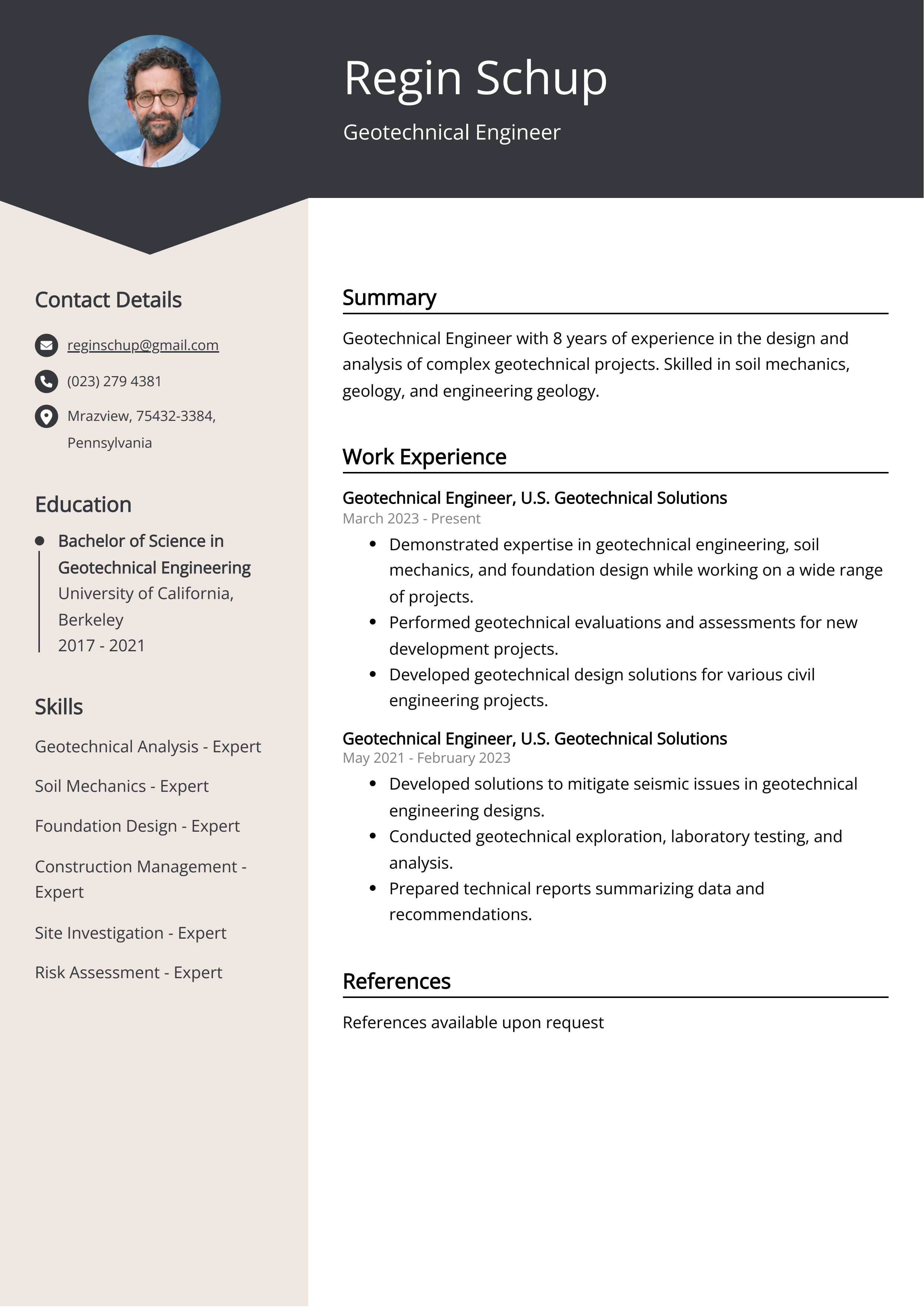Geotheta for Beginners
Geotheta for Beginners
Blog Article
Geotheta Things To Know Before You Get This
Table of ContentsGeotheta for DummiesOur Geotheta StatementsFacts About Geotheta UncoveredGeotheta Fundamentals ExplainedThe Geotheta PDFs

They conduct site examinations, accumulate samples, carry out lab tests, and evaluate data to examine the suitability of the ground for building tasks - Geo Tech Engineer. Based on their findings, geotechnical engineers offer suggestions for structure layout, incline security, retaining structures, and mitigation of geotechnical dangers. They team up with various other specialists, such as architects, architectural designers, and building and construction groups, to ensure that geotechnical considerations are integrated into the overall job style and application
By examining the actions and residential or commercial properties of soil and rock, they can identify potential geotechnical threats such as landslides, soil settlement, or slope instability. Their knowledge helps protect against failures or crashes that might jeopardize lives and property. Below are some in-depth tasks and duties of a geotechnical engineer: Website Examination: Geotechnical engineers conduct site examinations to collect data on subsurface problems.
They interpret the data to understand the residential properties and habits of the dirt and rock, including their stamina, leaks in the structure, compaction features, and groundwater problems. Geotechnical Evaluation and Design: Geotechnical engineers assess the information accumulated throughout website examinations to examine the security and suitability of the website for building and construction tasks. They execute geotechnical estimations and modeling to review aspects such as birthing capacity, settlement, incline stability, lateral planet stress, and groundwater flow.
The Definitive Guide to Geotheta
Foundation Layout: Geotechnical designers play a vital role in designing structures that can safely sustain the intended framework. They evaluate the dirt conditions and load demands to determine the ideal foundation kind, such as shallow structures (e.g., footings), deep structures (e.g (https://profile.hatena.ne.jp/geotheta/)., heaps), or specialized strategies like dirt renovation. They take into consideration elements such as settlement limits, birthing ability, and soil-structure communication to establish optimal structure layouts
They assess building and construction plans, monitor website activities, and conduct area assessments to confirm that the design recommendations are followed. If unexpected geotechnical concerns develop, they evaluate the situation and give recommendations for removal or changes to the style. Danger Assessment and Reduction: Geotechnical designers assess geotechnical threats and risks linked with the task website, such as landslides, liquefaction, or soil erosion.

Partnership and Interaction: Geotechnical designers function very closely with other experts involved in a job, such as designers, architectural designers, and building teams. Effective interaction and partnership are necessary to incorporate geotechnical considerations into the general task style and construction procedure. Geotechnical designers supply technical proficiency, answer questions, and ensure that geotechnical needs are fulfilled.
Geotheta Things To Know Before You Buy
Here are some kinds of geotechnical designers: Structure Designer: Structure engineers focus on creating and pop over to this site examining structures for structures. They evaluate the dirt problems, lots needs, and site qualities to figure out one of the most suitable structure kind and layout, such as shallow structures, deep structures, or specialized strategies like heap structures.
They review the variables affecting incline security, such as soil residential or commercial properties, groundwater conditions, and slope geometry, and establish techniques to stop incline failings and reduce dangers. Earthquake Engineer: Earthquake designers concentrate on assessing and making frameworks to hold up against seismic pressures. They examine the seismic danger of a site, examine soil liquefaction potential, and create seismic design requirements to make sure the safety and strength of structures during earthquakes.
They do area screening, gather examples, and analyze the gathered information to identify the soil properties, geologic developments, and groundwater conditions at a website. Geotechnical Instrumentation Designer: Geotechnical instrumentation engineers concentrate on tracking and determining the habits of soil, rock, and structures. They mount and preserve instrumentation systems that keep track of factors such as dirt settlement, groundwater levels, incline activities, and structural displacements to evaluate performance and provide early warnings of possible concerns.
The 9-Second Trick For Geotheta
They carry out examinations such as triaxial tests, loan consolidation tests, straight shear tests, and permeability tests to gather data for geotechnical analysis and design. Geosynthetics Engineer: Geosynthetics engineers specialize in the style and application of geosynthetic materials, such as geotextiles, geogrids, and geomembranes. They make use of these products to improve dirt security, reinforce slopes, give drainage services, and control disintegration.
They have a tendency to be investigatory people, which means they're intellectual, introspective, and investigative. They are curious, systematic, sensible, analytical, and logical. Some of them are likewise social, indicating they're kind, charitable, participating, patient, caring, valuable, understanding, sensible, and pleasant. Does this audio like you? Take our free career test to learn if geotechnical engineer is one of your leading occupation suits.
In the workplace atmosphere, geotechnical engineers use specialized software devices to carry out calculations, create designs, and analyze information. They prepare reports, testimonial task specifications, connect with customers and employee, and coordinate task activities. The workplace setup provides a conducive atmosphere for research study, analysis, and collaboration with other experts associated with the job.
Geotheta Can Be Fun For Anyone
They frequently see task sites to carry out website examinations, examine geotechnical problems, and collect information for evaluation. These visits involve taking a trip to different areas, sometimes in remote or difficult terrains. Geotechnical engineers might perform soil sampling, conduct tests, and screen building tasks to make certain that the geotechnical facets of the job are being applied correctly.
Geotechnical engineers likewise function in specialized geotechnical labs. Geotechnical research laboratory engineers work thoroughly in these atmospheres, managing screening tools, operating instruments, and tape-recording data.
Report this page